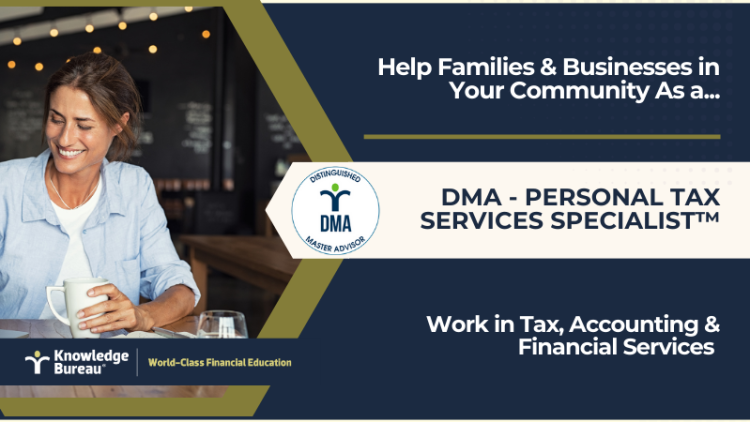Last updated: February 10 2026
The UHT May Be Cancelled, But Vacancy Taxes Remain

Geoff Currier
As tax professionals, you are keenly aware of the constant changes our federal government makes to the Income Tax Act. Adjustments are made, and you must adapt. Not often, though, is a tax eliminated altogether. But in the case of the Underused Housing Tax (UHT), that is exactly what has happened – it was cancelled in the federal budget of November 4, 2025, but Canada’s underused housing taxes have not been eliminated. Here’s what you need to know for tax season 2026.
The UHT - A Federal Tax Cancelled.
The UHT was introduced in 2022. It was a 1% tax on vacant or unused properties and was targeted primarily at foreign nationals who owned housing in Canada. In some cases, it also applied to Canadians, such as partners in a partnership, trustees, or corporations.
In November of 2025, the government tabled Bill C-15, the budget bill—an omnibus document that has been debated and received second reading in the House of Commons. Contained in that bill was the proposal to eliminate the UHT. Other measures were also included, such as the elimination of the digital services tax.
While debate continues, the bill is almost certain to pass and receive royal assent, which means that the UHT will be gone at a federal level. This means that clients who would have been required to pay the tax in 2023 and 2024 are not required to pay for 2025 and all years going forward.
However, and this is important for clients who fit the filing profile in the past - failure to file returns pay the UHT for 2023 or 2024 can still result in penalties. For individuals, the minimum fine is $1,000, and for corporations, the minimum fine is $2,000. If your client owns multiple properties, a separate UHT-2900 form must be filed for each residence. If there are two or more owners, each must file a separate UHT-2900 form.
Local Taxes: Vacant Home Taxes Still Apply. Despite the federal government’s move away from the UHT, your clients may still be subject to a Vacant Home Tax (VHT).
British Columbia has what is called the Speculation and Vacancy Tax, which applies to certain areas and was designed to discourage foreign ownership of Canadian property. The tax is 0.5% of the property’s assessed value for Canadian residents and up to 2% for foreign owners.
The issue of foreign ownership is particularly acute in the Vancouver area, so the city has its own tax called the Empty Home Tax, which is currently set at 3% of the property’s assessed value, with plans to increase that rate to 5%.
Toronto and Ottawa also have vacant home taxes in place of 1% of the home’s assessed value if it is vacant for more than six months.
Winnipeg introduced a fee in 2019 of 1% of the assessed property value if a property has been vacant for five years. The penalty currently sits at 1% for the first year, with an additional 1% per year, up to a maximum of five years.
Other Canadian municipalities are moving in that direction, including Ottawa (Vacant Unit Tax), Hamilton (Vacant Unit Tax), Windsor (Municipal Vacant Home Tax) and Sault Ste. Marie (Vacant Home Tax).
Fines and Penalties
Municipal penalties are generally not particularly severe. For example, in Toronto, failure to submit the owner’s declaration on time results in a fee of $21.24. Failure to declare can result in a $250 fine.
There can be more serious consequences, however. Making a false declaration or failing to provide requested information can result in fines of up to $10,000.
If the VHT in Toronto is unpaid, interest is charged at a rate of 1.25% per month beginning on the first day of default, which can result in a lien being placed on the property.
In Vancouver, there is a 5% charge on any unpaid balance. Like Toronto, Vancouver also charges a $250 fee for failure to declare prior to the deadline.
These are just a few examples of how local vacancy taxes are applied. If your clients are in a jurisdiction with a vacant home tax, you will need to consult the municipality and ensure they are aware of all local regulations.
VHTs and Short-Term Rentals (STRs)
In some areas, the implementation of a VHT is an effort to curb short-term rentals (STRs), which may remain vacant for longer periods. The goal is to encourage owners to sell units so they can be converted into long-term housing.
However, as previously discussed in the Knowledge Bureau Report, the overall impact of short-term rentals on the Canadian housing market is minimal. A large portion of STRs in Canada are located in major tourist areas such as Whistler, B.C., and Mont-Tremblant, Quebec, and are unlikely to be converted into long-term housing.
That said, clients who own properties rented on a short-term basis must be familiar with all applicable local regulations. Failure to comply can result in the loss of allowable expenses that would otherwise be included on their T1 returns.
The Bottom Line
The federal Underused Housing Tax may have been cancelled, but depending on where your client lives, they may still be subject to a vacant home tax. Tax compliance requirements, penalties and interest costs will still haunt those who failed to file a federal UHT-2900 for 2023 and 2024 as well, or pay the required taxes.

